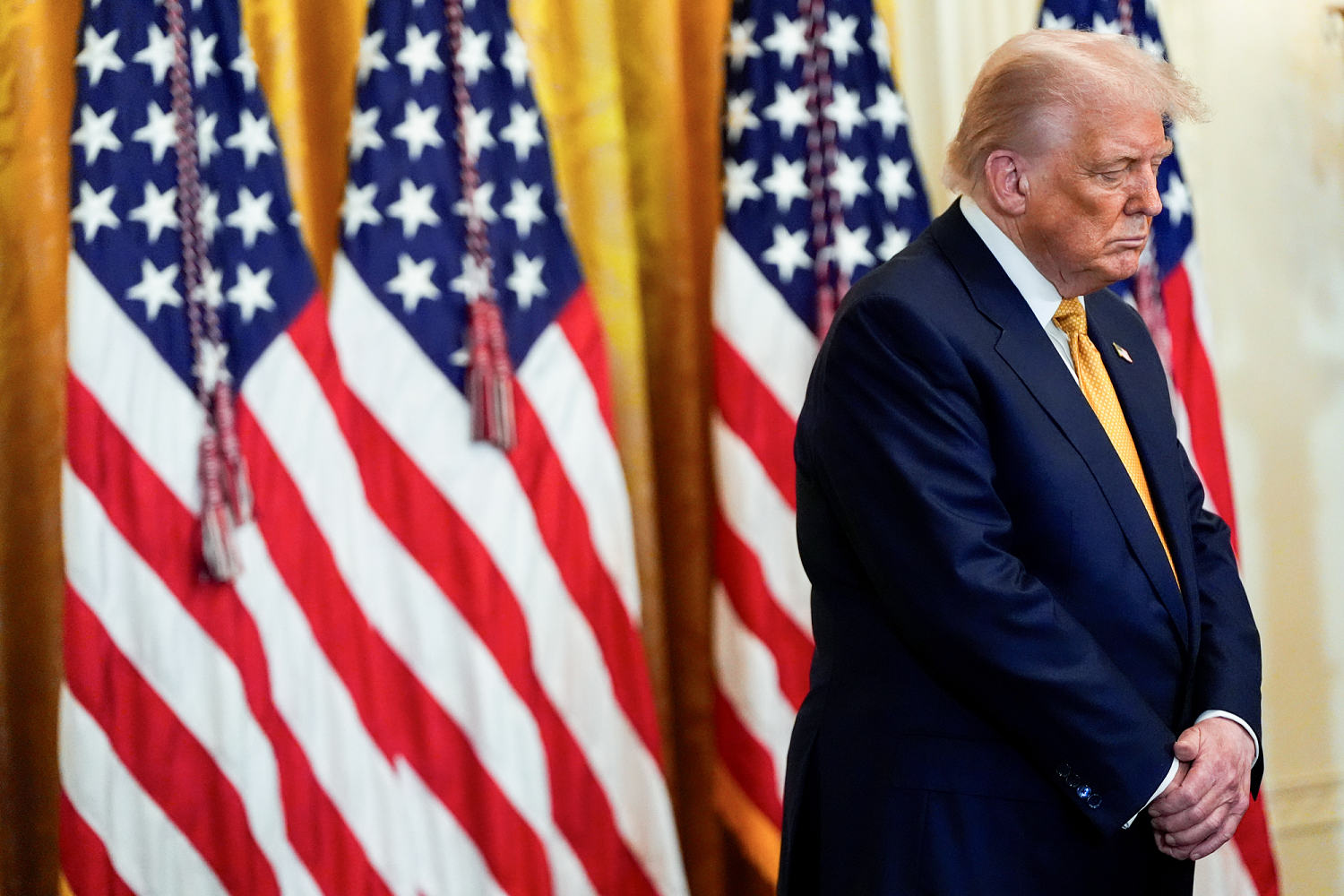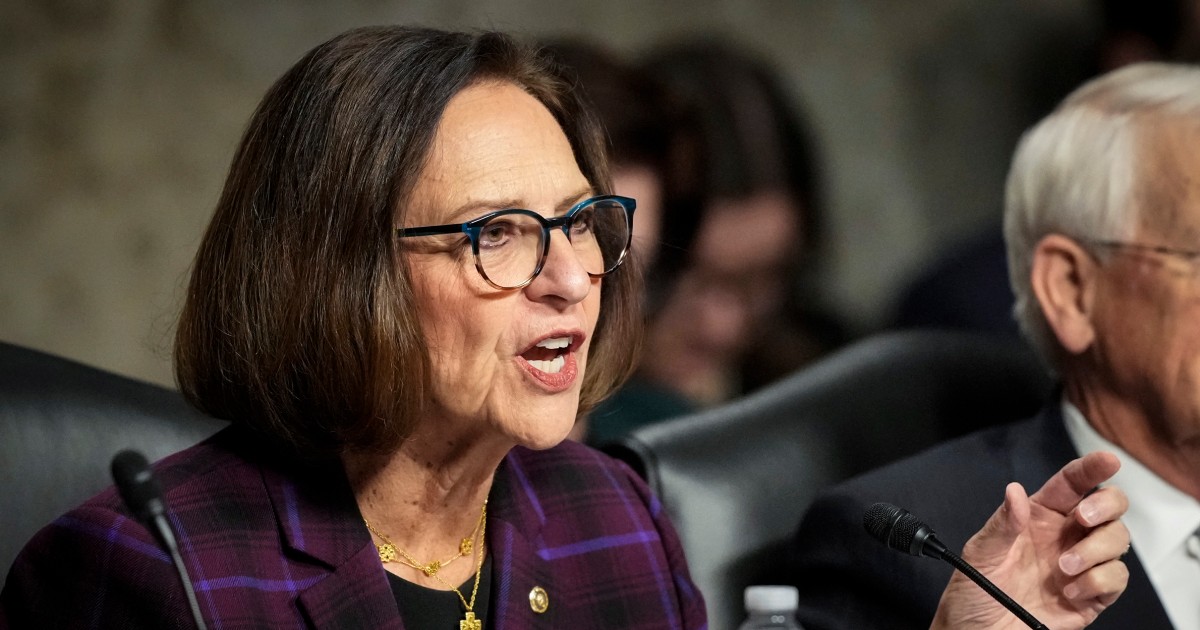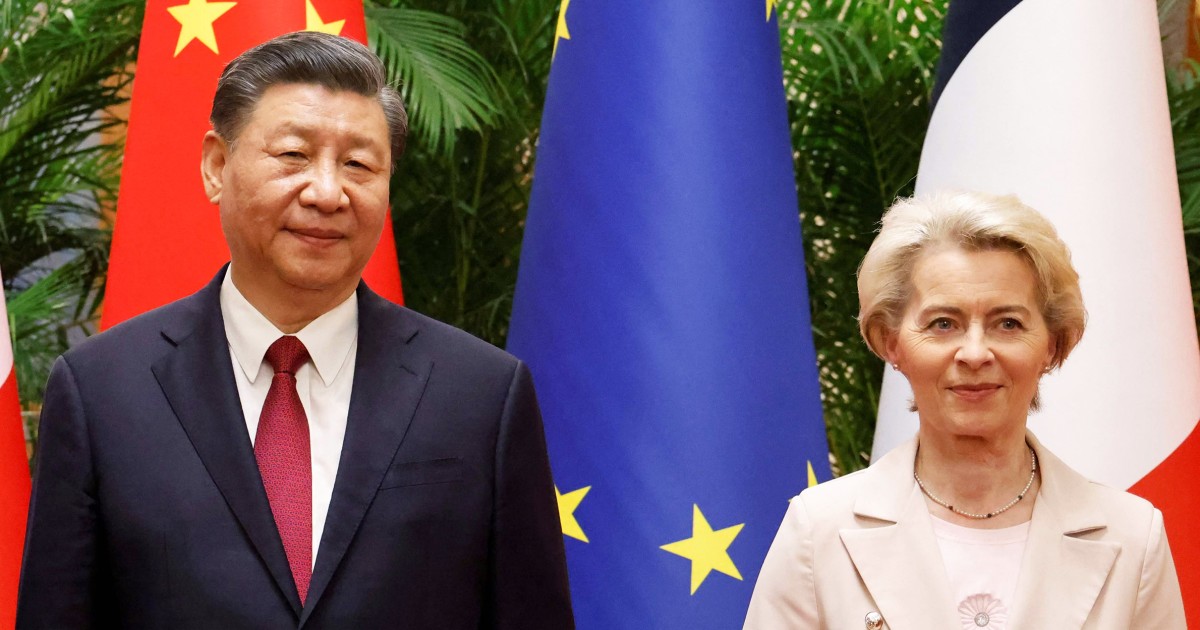
Welcome to the online version of From the Politics Desk, an evening newsletter that brings you the NBC News Politics team’s latest reporting and analysis from the White House, Capitol Hill and the campaign trail.
In today’s edition, we take a look at how President Donald Trump is steering GOP lawmakers away from statewide bids with an eye on protecting the House majority. Plus, Andrea Mitchell breaks down the latest chapter in the Trump administration’s attempts to shift attention away from the Epstein files.
Sign up to receive this newsletter in your inbox every weekday here.
— Adam Wollner
How Trump is shaping the midterm map
A trio of Republican members of Congress have in recent days declined to seek a higher office, developments that could not only help their party avoid messy statewide primaries, but shore up battleground districts as they aim to protect their fragile House majority in 2026.
And in all three cases, President Donald Trump played a key role.
New York: After toying with a gubernatorial bid for months, GOP Rep. Mike Lawler announced today he would not challenge New York Democratic Gov. Kathy Hochul and instead run for re-election.
The decision comes as a relief to Republicans, who feared Lawler’s Hudson Valley district — one of three they represent that Kamala Harris won in the 2024 election — would be even more at risk without an incumbent on the ballot. Trump and GOP leaders had been trying to steer Lawler away from the governor’s race, with the president even endorsing him for re-election in May before he made up his mind.
Lawler said on “Meet the Press NOW“ that he met with Trump, who “offered his perspective that he believes the right thing to do is to run for re-election.”
“But ultimately it was my decision,” Lawler added.
Lawler’s move could also clear the way for Rep. Elise Stefanik, a Trump ally who has been weighing a gubernatorial run after her nomination to be U.S. ambassador to the United Nations was pulled earlier this year. Stefanik said today she’d announce her plans after this fall’s elections.
Michigan: Republican Rep. Bill Huizenga also announced today he would not run for the Senate, averting a primary clash with former Rep. Mike Rogers in the swing state.
Huizenga said he made the decision “in consultation with President Trump.” But notably, he did not say whether he’d run for another term in his southwest Michigan district, which the Cook Political Report with Amy Walter rates as “likely Republican.”
Still, the announcement is welcome news for Rogers and the Senate GOP leaders who are supporting him as he seeks the seat Democratic Sen. Gary Peters is vacating. Trump has not yet endorsed a candidate in the race, although he is expected to back Rogers soon, two Republican sources told NBC News.
Iowa: Earlier this month, GOP Rep. Zach Nunn passed on a bid for Iowa governor after speaking with Trump. Nunn, whom Trump praised as a “team player,” is instead running again in his southwest Iowa district, which he won by 4 points last year and is expected to be among Democrats’ top targets next year.
Gov. Kim Reynolds’ decision to not seek re-election could lead to a crowded Republican field. One of Nunn’s colleagues, Rep. Randy Feenstra, who represents a safer district, is exploring a bid.
Looking ahead: Plenty of challenges still await Republican leaders and Trump, who has been steadily rolling out endorsements throughout the year, as the midterm map takes shape. Heading into the summer congressional recess, they will work to ensure that incumbents in key states and districts run for re-election. And they are still searching for candidates in critical Senate races in Georgia and North Carolina.
North Carolina: Speaking of the Tar Heel State, Democrats are poised to score a prized recruit for the seat held by retiring GOP Sen. Thom Tillis. Former Gov. Roy Cooper is set to enter the race, according to two sources familiar with his plans.
The latest chapter in Trump’s distraction strategy
President Donald Trump and his Cabinet have been busy this week declassifying reports and levying a flurry of controversial accusations.
The timing has aroused suspicions of a larger strategy. Case in point: Today’s appearance by the head of national intelligence, Tulsi Gabbard, in the White House briefing room to amplify Trump’s unfounded accusation that former President Obama committed “treason” to rig the elections in 2016 and 2020.
Treason is defined as attempting to overthrow the government by waging war against the state, or materially aiding its enemies. Trump is basing his charge on a widely discredited 2020 Republican House intelligence report that excluded Democratic committee members, differing from an earlier, bipartisan and unanimous Senate report led by then-Intelligence Committee Chairman Marco Rubio — now, of course, Trump’s secretary of state and national security adviser.
Still, Gabbard has referred Obama for possible criminal prosecution, creating headlines despite no indication of an error in the intelligence assessments or wrongdoing. Even if there were, Obama would likely have immunity based on last year’s Supreme Court’s decision that presidents cannot be prosecuted for offenses while in office. Plus, Trump’s own special prosecutor found no reason to file charges after a three-year investigation.
Also striking was the sudden release of secret files on Martin Luther King Jr. The files had been under a court-ordered seal since 1977, but Trump signed an order in January to take steps to make them public. On Monday, thousands of pages were released with no advance notice — while King’s family was still reading them, hoping to redact unsubstantiated claims about MLK’s personal life. Critics said the White House was resurrecting old conspiracy theories to distract from the furor over Trump’s failure to release the Epstein files.
Adding to the cacophony was the president’s social media exhumation of a settled dispute over the name of Washington’s NFL team. Known for almost a century as the “Redskins,” in 2022 the team was renamed the “Commanders” to satisfy many Native American tribes.
But now Trump is threatening to block the team’s return to Washington from the suburbs if it doesn’t reclaim its old name. That would be a nonstarter with local officials who have to approve the team’s move — and hardly a distraction to diehard D.C. football fans.
🗞️ Today’s other top stories
- ⚖️ Epstein fallout, part 1: A federal judge in Florida ruled that the court’s “hands are tied” in releasing federal grand jury transcripts from 2005 and 2007 in connection with an investigation into Jeffrey Epstein. Read more →
- 📃 Epstein fallout, part 2: The House Oversight Committee subpoenaed Ghislaine Maxwell for a deposition to occur from prison in Tallahassee on Aug. 11. Read more →
- ☑️ Epstein fallout, part 3: A House Oversight subcommittee voted to subpoena the Justice Department for its complete Epstein files, with the names of victims redacted. Read more →
- ⚖️ SCOTUS watch: The Supreme Court allowed Trump to fire members of the Consumer Product Safety Commission, a federal agency set up by Congress to be independent of political pressures. Read more →
- 🇯🇵 We have a deal: Trump said that his administration reached a deal with Japan, one of the largest U.S. trading partners, to lower its tariff rate to 15% as part of a sweeping trade agreement. Read more →
- 🔎 New probe: The State Department said it launched an investigation into Harvard University’s compliance with the government-run visa program for international students. It’s the latest effort by the Trump administration to prevent the university from enrolling international students. Read more →
- 🗽 New frontiers: The calls from some Republicans to strip Zohran Mamdani’s citizenship are sparking alarm about Trump weaponizing denaturalization. Read more →
- 🗳️ 2025 watch: This year’s gubernatorial races in Virginia and New Jersey will provide an initial test of how Trump’s “big, beautiful bill” plays on the campaign trail. Read more →
- 🇺🇦 Protests in Ukraine: Ukrainians took to the streets over a law signed by President Volodymyr Zelenskyy that curbs the country’s top two anti-corruption agencies. Read more →
- 👁️ Big Brother is watching: Rep. Greg Casar, D-Texas, is introducing a bill to prohibit the use of surveillance-based price setting, which some companies do to set different price points for different people. Read more →
- Follow live politics coverage →
That’s all From the Politics Desk for now. Today’s newsletter was compiled by Adam Wollner and Dylan Ebs.
If you have feedback — likes or dislikes — email us at [email protected]
And if you’re a fan, please share with everyone and anyone. They can sign up here.








